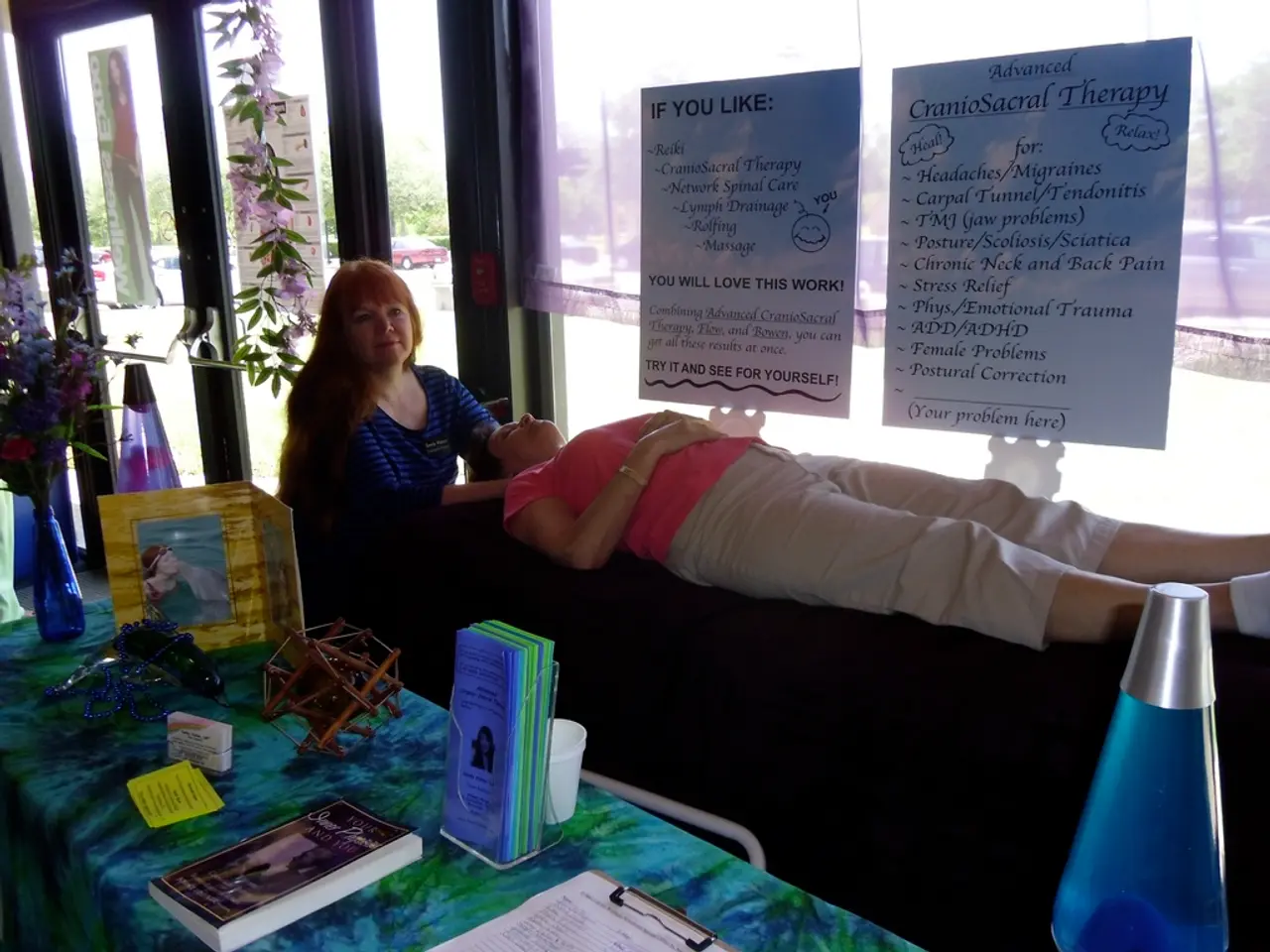Understanding Social Anxiety and Psoriatic Arthritis: Essential Information
In a world where chronic conditions like psoriatic arthritis (PsA) can significantly impact a person's life, it's essential to understand the complexities of this disease and the various strategies available to manage its physical and mental effects.
PsA is a type of arthritis that affects not only the joints but also the skin, causing a wide range of symptoms such as fatigue, painful and inflamed tendons, swollen fingers and toes, joint pain and stiffness, reduced range of motion, nail changes, eye redness and pain, among others. One of the most challenging aspects of PsA is its impact on a person's mental health.
Research has shown that mood disorders, particularly depression and anxiety, are more common among people with PsA. A 2014 study found that rates of depression were higher among people with psoriasis than in the general population - and that rates were even higher in people with PsA. The age of disease onset can also affect its influence on social anxiety, according to a 2017 study.
Fortunately, there are several strategies to help manage these mental health challenges. Therapy, particularly cognitive behavioral therapy (CBT), has been found effective at helping to improve social anxiety. CBT techniques used may include reappraisal of negative thoughts and exposure therapy. Some evidence suggests that selective serotonin reuptake inhibitors (SSRIs) helped with diagnosed social anxiety disorder.
Positive beliefs and determination are important parts of a successful mental health strategy for managing chronic pain. Exercise, too, has been shown to reduce joint stiffness, pain, and fatigue in people with PsA, and improve mood. However, it's crucial to consult with a healthcare provider before starting any new exercise regimen.
Managing anxiety and depression can minimise the effects of PsA, according to research from 2021. This is further supported by a 2020 study involving CBT, which looked at the connection between inflammation and psychiatric disorders, finding that participants experienced improvements in their anxiety.
It's also worth noting that stress may cause PsA flares, which can create anxiety. Conversely, anxiety and depression can worsen the impression of pain, according to a 2003 research review. This vicious cycle underscores the importance of addressing both the physical and mental aspects of PsA.
In addition to professional help, support groups can provide a safe space for people living with PsA to share their experiences and find comfort. The National Psoriasis Foundation has a peer support program called One to One, while Healthline also has Bezzy PsA, a private forum where people with PsA can connect.
Remember, finding the confidence to get out there socially can make a huge difference for people with PsA. PsA can increase social anxiety and make you self-conscious about your appearance. However, understanding that you're not alone in your struggles and that there are effective strategies to manage both the physical and mental challenges of PsA can help empower you to live a fulfilling life despite the condition.
While dietary interventions have shown mixed results, a 2018 review of studies on diet and PsA gave weak recommendations for any given diet in helping with symptoms. It's always best to consult with a healthcare provider before making significant changes to your diet.
In conclusion, managing PsA requires a holistic approach that addresses both the physical and mental aspects of the condition. By understanding the complexities of PsA and employing strategies to manage its effects, individuals with PsA can lead fulfilling lives.







